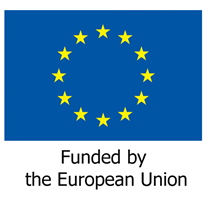International labour standards, national legislation on the protection of migrant workers and promoting an evidence-based public discourse
The SAMM project will advocate for the ratification and effective implementation of international labour standards on the protection of migrant workers, and will contribute strongly to defuse misconceptions, and combating discrimination, racism and xenophobia and other forms of intolerance against migrant workers. Some of this work will be based on the results of projects such as the OECD/ILO “Migrant Workers contribution to Developing countries’ Economies”. The SAMM project will engage with the media to promote balanced and ethical reporting on labour migration aimed at combatting the toxicity in the debate on migration and raise awareness on the risks and challenges of labour migration as well as the positive contributions migrant workers make to their communities in host and origin countries. Linked with the annual Global Media Competition, a SADC level media competition and an adaptation of the media toolkit on labour migration in Africa could be rolled out with SADC partners and SADC journalists who will be trained to become trainers based on the media toolkit.
- Sensitise and provide assistance to Member States to the need to ratify C. 97 and C. 143 as well as the UN Convention on the Rights of Migrant Workers and Members of their Family (e.g. Countries’ gap analysis);
- Media campaign and Media Training on promoting an evidence-based public discourse on migrant workers’ contribution to development;
- Advocacy campaign on the ratification and effective implementation of C. 97, C. 143 and the UN 1990 Convention on the Rights of Migrant Workers.
- Develop material, tools for Standard ratification (e.g. Model Labour Migration Legislation);
- Capacity building of relevant right owners networks on ILS on the protection of migrant workers, as well as their Fundamental Rights and related reporting mechanisms.
- Assessment and production of report on ratification of international Instruments on Labour Migration among Southern Africa Member States.
The (GCM) recognizes that respect for the rule of law, due process and access to justice are fundamental to all aspects of migration governance. This means that the State, public and private institutions and entities, as well as persons themselves, are accountable to laws that are publicly promulgated, equally enforced and independently adjudicated, and are consistent with international law. The GCM rests on core international human rights treaties (particularly the International Convention on the Protection of the Rights of All Migrant Workers and Members of Their Families). It also rests on the International Labour Organization conventions on promoting decent work and labour migration (particularly the Migration for Employment Convention (Revised), 1949 (No. 97), Migrant Workers (Supplementary Provisions) Convention, 1975 (No. 143), Equality of Treatment (Social Security) Convention, 1962 (No. 118), and Domestic Workers Convention, 2011 (No. 189)).
GCM 6 “Facilitating fair and ethical recruitment and safeguard conditions that ensure decent work” include to:
- Promote signature and ratification of, accession to and implementation of relevant international instruments related to international labour migration, labour rights, decent work and forced labour;
- Build upon the work of existing bilateral, subregional and regional platforms that have overcome obstacles and identified best practices in labour mobility, by facilitating cross-regional dialogue to share this knowledge, and to promote full respect for the human and labour rights of migrant workers at all skills levels, including migrant domestic workers;
(e) Enact and implement national laws that sanction human and labour rights violations, especially in cases of forced and child labour, and cooperate with the private sector, including employers, recruiters, subcontractors and suppliers, to build partnerships that promote conditions for decent work, prevent abuse and exploitation, and ensure that the roles and responsibilities within the recruitment and employment processes are clearly outlined, thereby enhancing supply chain transparency;
(i) Provide migrant workers engaged in remunerated and contractual labour with the same labour rights and protections extended to all workers in the respective sector, such as the rights to just and favourable conditions of work, to equal pay for work of equal value, to freedom of peaceful assembly and association, and to the highest attainable standard of physical and mental health, including through wage protection mechanisms, social dialogue and membership in trade unions;
The GCM Objective 17 “Eliminate all forms of discrimination and promote evidence-based public discourse to shape perceptions of migration” expresses that Member States commit to eliminate all forms of discrimination, condemn and counter expressions, acts and manifestations of racism, racial discrimination, violence, xenophobia and related intolerance against all migrants in conformity with international human rights law. Member States further commit to promote an open and evidence-based public discourse on migration and migrants in partnership with all parts of society, that generates a more realistic, humane and constructive perception in this regard. Member States also commit to protect freedom of expression in accordance with international law, recognizing that an open and free debate contributes to a comprehensive understanding of all aspects of migration.
To realize this commitment, Member States draw from the following actions:
(e) Provide migrants, especially migrant women, with access to national and regional complaint and redress mechanisms with a view to promoting accountability and addressing governmental actions related to discriminatory acts and manifestations carried out against migrants and their families;
(f) Promote awareness-raising campaigns targeted at communities of origin, transit and destination in order to inform public perceptions regarding the positive contributions of safe, orderly and regular migration, based on evidence and facts, and to end racism, xenophobia and stigmatization against all migrants;
 English
English
